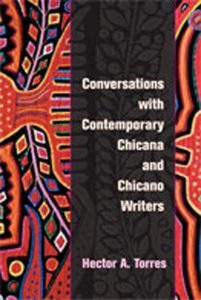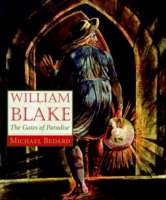 Hector A. Torres conducted these interviews with today’s popular Chicano/a writers, asking each about language and life between languages, about the creative drive that has guided them in their craft and commits them to their art. In sharing their responses, Torres reveals a brief biography of each author and a concise examination of their writings. Taking their stories and essays individually and collectively, Torres explains how each author reiterates issues that have concerned Mexican Americans since at least 1848. Chicano/a authors know that an abundance of politics can spoil a story, as can too little. The writers included here span historical terrain, first, under the shadow of Manifest Destiny and, then, under the America’s imperial sovereignty stance. Interviewees include Rolando Hinojosa (“I Reflect the Way Valleyites Act and React”), Arturo Islas (“I Don’t Like Labels and Categories”), Erlinda Gonzales-Berry (“On the New Mexican Borderlands”), Gloria Anzaldúa (“The Author Never Existed”), Ana Castillo (two separate interviews), Sandra Cisneros (two separate interviews), Pat Mora (“I Was Always at Home in Language”), Richard Rodriguez (“I Don’t Think I Exist”), Demetria Martinez (“To Speak as Global Citizens”), and Kathleen Alcalá (“To Tell the Counternarratives”).
Hector A. Torres conducted these interviews with today’s popular Chicano/a writers, asking each about language and life between languages, about the creative drive that has guided them in their craft and commits them to their art. In sharing their responses, Torres reveals a brief biography of each author and a concise examination of their writings. Taking their stories and essays individually and collectively, Torres explains how each author reiterates issues that have concerned Mexican Americans since at least 1848. Chicano/a authors know that an abundance of politics can spoil a story, as can too little. The writers included here span historical terrain, first, under the shadow of Manifest Destiny and, then, under the America’s imperial sovereignty stance. Interviewees include Rolando Hinojosa (“I Reflect the Way Valleyites Act and React”), Arturo Islas (“I Don’t Like Labels and Categories”), Erlinda Gonzales-Berry (“On the New Mexican Borderlands”), Gloria Anzaldúa (“The Author Never Existed”), Ana Castillo (two separate interviews), Sandra Cisneros (two separate interviews), Pat Mora (“I Was Always at Home in Language”), Richard Rodriguez (“I Don’t Think I Exist”), Demetria Martinez (“To Speak as Global Citizens”), and Kathleen Alcalá (“To Tell the Counternarratives”).
Authors
The Summer Of The Marco Polo

The wreck of a great sailing ship inspires a budding author.
William Blake: The Gates Of Paradise

Journey back to the 1700s to meet one of the most fascinating people in history. Dreamer, craftsman, poet, madman, and genius — William Blake. Born in 1757 in London, as a boy he apprenticed as an engraver and began a career that would include masterpieces of art.Blake lived during times of incredible change and upheaval, including the Gordon Riots and the French Revolution. Spiritualism and the allure of magic were being replaced by a belief in rationalism. Blake celebrated the beauty of small things. His work showed, “…a world in a grain of sand and heaven in a wild flower….” [William Blake] Yet, with the noise and dirt of mills (factories), the Industrial Revolution was drowning out a quiet, rural way of life. The value of things made carefully by hand was being lost.At the same time, the printing press was making it possible for more and more people to read. The rise of printed books and book illustration was revolutionary and Blake was part of it.On the 250th anniversary of Blake’s birth, master storyteller Michael Bedard brings this Renaissance man and his times to vivid life in this biography that is lavishly illustrated with Blake’s work.
